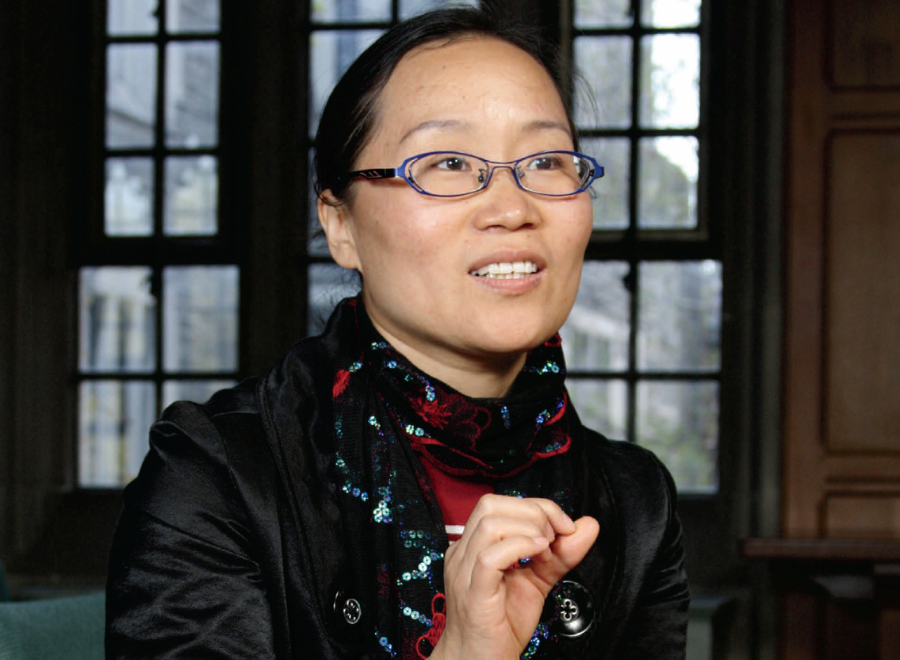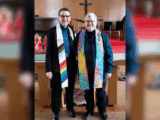Rev. Yanling Meng teaches at the Nanjing Union Theological Seminary in China. Sponsored by the United Church, she is doing a doctorate in religious studies at the University of Toronto. She spoke to Kevin Spurgaitis about the growth of Christianity in the communist country.
KEVIN SPURGAITIS: There are roughly 53 million practising Christians in China, of which 39 million are Protestants and 14 million are Catholics, according to a study by a university in Shanghai. Other polls, taking into account unofficial house churches, estimate as many as 100 million followers. Why is Christianity becoming so popular?
You may unsubscribe from any of our newsletters at any time.
YANLING MENG: Yes, it’s a very large number. During the 1980s, Christianity grew so very rapidly with the loosening of state restrictions on religion. In the ’90s, we saw more church buildings being constructed and more national activities by the state-sanctioned Chinese Christian Council and the Three-Self Patriotic Movement [Protestant], as well as the Chinese Patriotic Catholic Association. With today’s economic development, people are moving from being closed in to being more at liberty, from poverty to abundance, and at the same time, looking to fulfil a new set of needs, mainly spiritual.
KS: There was a time when Christian missionaries weren’t welcome in China. The anti-colonialist Boxer Rebellion of 1898 and the anti-western Cultural Revolution of the 1970s come to mind. Besides the loosening of state restrictions, what else has changed in the society to allow Christianity to flourish?
YM: The Christian religion was once considered a part of the occupying armies of the world. It was very much considered a part of colonialism. But scholars, especially, are secure enough to discuss the faith now. They’re much more open about their interest in the religion, even though they may not practise the faith or even believe in God necessarily. It has become a safe topic.
KS: How are Christians, in particular, viewed by the Communist Party of China?
YM: From the perspective of the government, Christian believers are good human beings. They are less likely to do illegal things. They follow the law and make society more stable. Also, they inspire people to be good human beings. This is very important; there’s talk about corruption in society and unethical behaviour. There is a call for service to the people, which was lost after the Cultural Revolution. So along with the revival of Marxist and Confucianist values, there is this acceptance of Christianity.
KS: How do you characterize Christians in the country?
YM: Believers are very devout; they go to church every Sunday. If you’re a Christian, you want everyone to become a Christian, too. You want to bring new people — friends and relatives — into your church.
KS: You weren’t born into the faith. How did you become a Christian?
YM: At the age of 10, I was the first in my family to practise Christianity. My aunt was a believer and always brought me to someone’s house to sing hymns and read Bible verses. There weren’t any church buildings in my village at the time. But then my mother became seriously ill, and some people visited our house to pray and help my family through the difficult time. Finally, members of my family converted to Christianity themselves.
KS: How important was it for you to pursue theological studies at the Nanjing Union Theological Seminary?
YM: It’s another expression of my Christian faith. The Holy Spirit changed my heart and that of my whole family. My parents even encouraged me to go to the seminary.
KS: In your paper Women, Faith, Marriage: A Feminist Look at the Challenges for Women, you acknowledge spousal abuse and neglect in China. What role, if any has the church played in promoting gender inequality?
YM: Contemporary Chinese culture can only be an extension of Chinese history. Society has historically placed females lower than males. Churches, too, taught that the husband is the head of the family and the wife is the follower. But as men have gotten rich in recent years and have left or divorced their wives, it’s been a real challenge for contemporary women. Sometimes, divorce may be considered the fault of the wife, even though female believers talk to me about physical and verbal abuse by their partners.
KS: How do you propose changing the status quo?
YM: I’m 37, married for 10 years and have a seven-year-old boy. But I’m more feminist than most. I encourage this kind of idea in the classroom, although I have met with some opposition. But more and more people, students especially, are willing to accept feminism. The challenge remains teaching women, through the Christian Church, how to be independent and how to deal with abuse. I’m confident they can be empowered to lift themselves from this violence.
KS: What other positive changes has the growth of Christianity brought about in China?
YM: After we opened up to the West, we lost our traditions and ethics, some feel. Our government then tried to build a harmonious society, and churches were encouraged to help make this harmonious society. The Amity Foundation, created by Christian leaders in 1985, helps poor areas of the country to develop. Now there are many more voluntary organizations arising, following the example of Amity.
KS: With about 55,000 officially recognized churches and only 3,700 ordained pastors, China has an obvious deficit of trained clergy. What problems has this created?
YM: Yes, there’s so much spontaneous Christianity happening now. And with so few pastoral workers and church leaders, the church is growing faster than it can be educated, especially in rural areas. We’re seeing the misappropriation and distortion of Christianity — the mixing of it with folk beliefs and superstition — especially in the countryside, where there are lower education levels. It’s a big problem in China. We have 250 students at the Nanjing Seminary, and that number will most certainly double in the coming years. But we need to train more pastoral workers. Lay people, also, will become increasingly important in the church in the coming years.
KS: It’s believed that two generations from now, Chinese Christians will make up the majority of Christians worldwide. What are your projections?
YM: Well, we have many people and many other religions in the country, especially Buddhism, which more people practise. But as I say, the number of Christians in China is still significant. Many followers cannot find a seat in their church on Sundays. Some sit in secondary buildings and watch services on [closed-circuit television] if they’re not able to arrive an hour early. That will change, of course, because every three days or so, two church buildings are built — both big and small. It takes a lot of money, but we’re going to keep building We, Christians, have a voice nowadays. We are being heard.
***
This story first appeared in The United Church Observer’s September 2010 issue with the title “‘Every three days, two church buildings are built in China.’”













